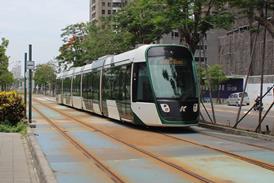BART warns that its funding model is no longer feasible
By Metro Report International2024-06-21T05:00:00

USA: The Bay Area Rapid Transit board has approved a two-year budget which maintains service levels and staffing, but it has warned that the San Francisco-centred network’s current fare-based funding model is no longer feasible.
Already have an account? LOG IN
To continue…
You’ve reached your limit of content for the month
Get enhanced access to Railway Gazette news and weekly newsletters.

For almost 200 years, the Railway Gazette Group has been the leading provider of news, analysis and intelligence for the international railway industry. Our independent and authoritative content is read by operators, regulators and the supply industry in over 140 countries using a variety of tailored subscription packages.
Site powered by Webvision Cloud



